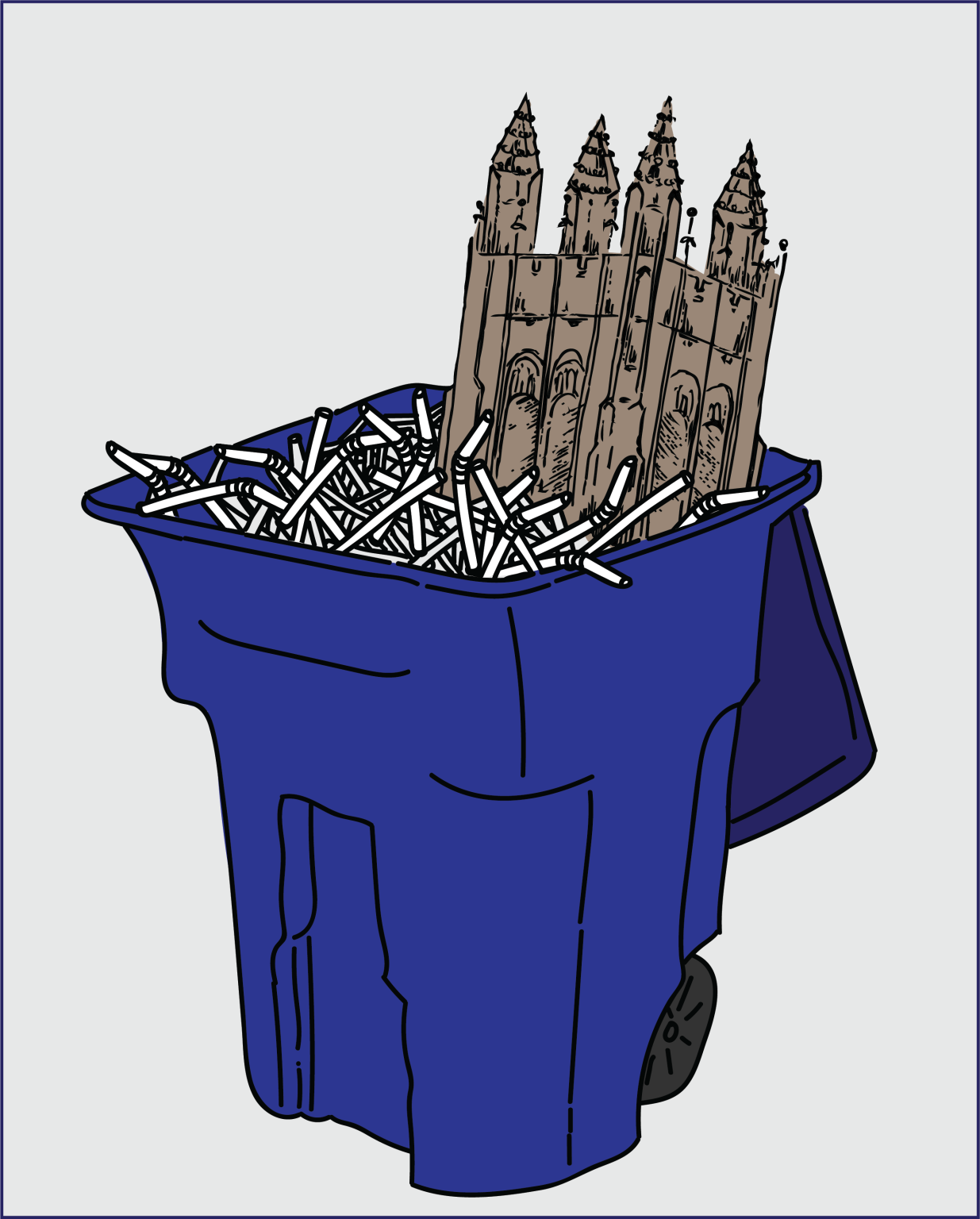Small eco-friendly efforts are good, but not enough
Efforts to reduce plastic waste have been on the rise in the last few years, especially since this past July when Starbucks announced that they would remove all plastic straws from their stores by 2020.
Following that announcement, Disney, Hyatt, American Airlines and a host of other major companies have made similar commitments to stop using single-use straws or to stop using plastic straws altogether.
However, pollution from plastic straws only makes up a tiny fraction of the plastic in our oceans. A large amount comes from plastic bottles, approximately 1.6 billion of which are produced every day. Hardly any of those bottles are recycled after usage.
Of all the plastic produced since the 1950s, only 9.5% was recycled, with the rest either incinerated or piled up in landfills or the natural environment.
I’m sure everyone has seen the heartbreaking videos of sea turtles with straws in their noses and pelicans with plastic soda rings like nooses around their necks; these are just some of the horrifying images of pollution being carelessly put into the environment.
It’s images like these that caused people to act. The no straw campaign was one of the most prevalent ecological activist campaigns of 2018, backed by celebrities like Tom Brady and Mick Jagger. The hashtag #StopSucking was all over Twitter and Instagram, championing the cause of using less plastic and getting rid of plastic straws entirely.

It’s easy to get behind these campaigns, and it’s good to support them. But it’s not necessarily the solution. Starbucks is abandoning plastic straws, but the new lids they’re introducing use more plastic. In response to accusations about the new lids, Starbucks responded, “recycling systems can capture the lid versus the straw which is too light and escapes into the waste stream.”
Yes, recycling systems can capture these plastic lids. It doesn’t mean that they will. It also doesn’t mean that consumers will recycle all of this plastic in the first place. In addition, a large amount of the plastic bottles and other plastic products in the ocean come from companies like Coca-Cola, Pepsi and Nestle.
We can ban plastic straws, but that won’t help when mega-companies like Coke, Pepsi and Starbucks continue to make plastic bottles and cups which will most likely end up directly in the ocean.
For the last few decades, most of America’s recycling was sent to China to be made into new products. However, in 2017, China raised the transfer prices, making it increasingly more expensive for the U.S. to send its plastic waste overseas to actually be recycled. Many municipalities are choosing to send the recyclables to landfills rather than pay the higher prices, meaning that the plastics are ending up in the ocean rather than actually being recycled.
I’m all for getting rid of plastic straws: I carry a reusable straw in my backpack at all times. But our small efforts should also focus on the big picture: lobbying for huge corporations to stop producing so much plastic.
Being eco-friendly and making individual efforts to reduce plastic on a small-scale is important. But these same grassroots efforts should be directed into pushing huge companies and corporations to being more eco-friendly in the same manner.
These corporations contribute more pollution to Earth than any individual ever could. For example, a study in 2017 found that 100 companies alone contribute to 70% of global emissions.
The eco-friendly movement needs to direct efforts towards making corporations more accountable for pollution they’re creating. If the U.S. has given up on recycling efforts, it’s important to put pressure on big businesses to shrink their plastic production to make up the difference.
For now, we can start with plastic straws. But soon we’ll have to start holding corporations accountable for their plastic production and emissions in order to accomplish real change for our environment.














































